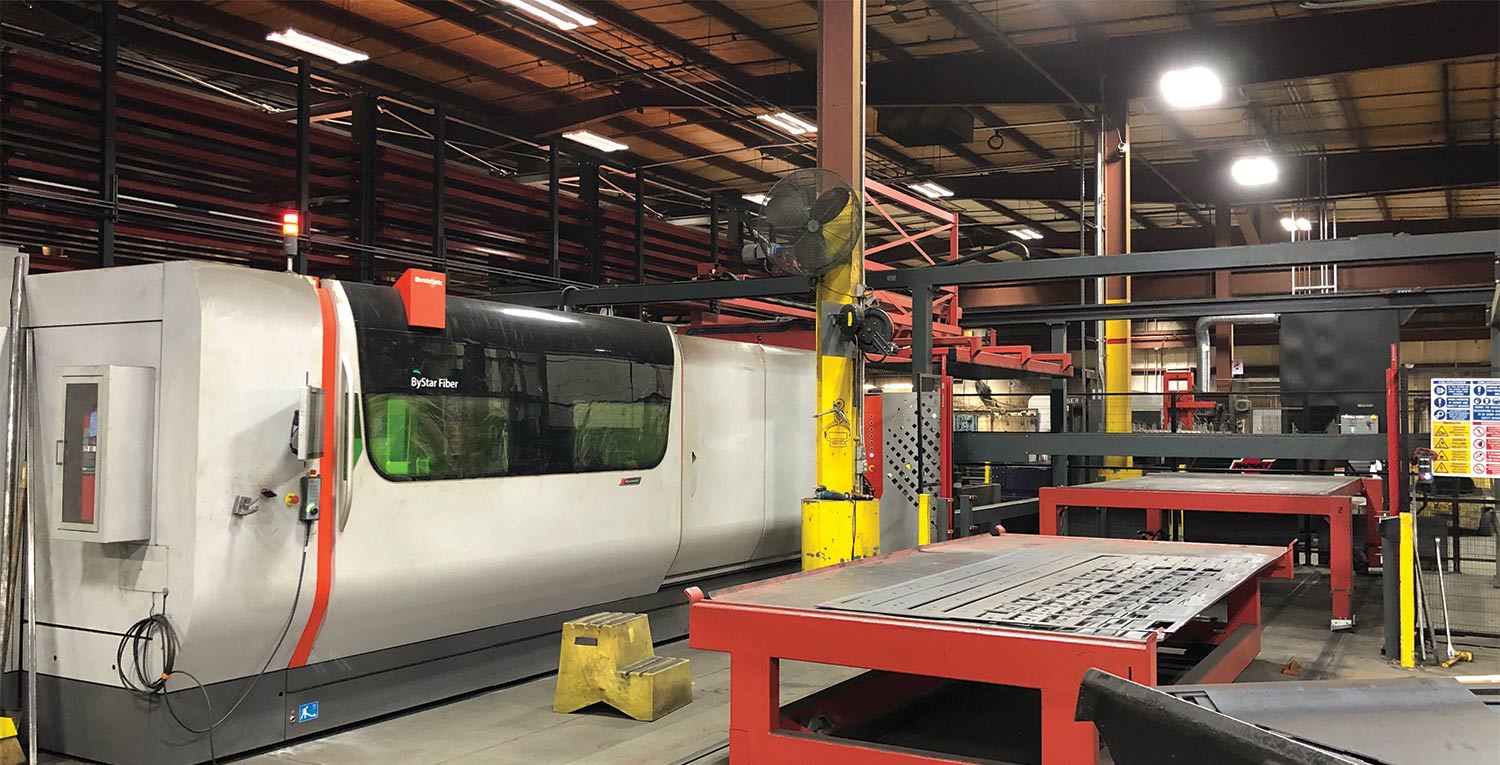apham-Hickey Steel Corp. began creating its brand over 93 years ago in Chicago, and its reputation has grown alongside its 10 branches—four of which became part of the company less than two years ago.
Will Hickey, chief commercial officer for the fourth-generation, family owned service center chain, says continuing to offer excellent service to customers plays a paramount role in Lapham-Hickey’s strategic decisions. He cites a series of capital expenditures over the past three years.
“In 2017, we commissioned a 40,000-square-foot addition to our Bedford Park facility to install a new Red Bud slitting line. Our existing slitting time was constricted, and we needed more capacity to provide customers with shorter lead times.”
The new 60-inch-wide line accepts 30-ton coils and can process material from 0.008 inch to 0.25 inch thick.

In addition to the packaging efficiencies, there is a dual-mandrel recoiler to reduce transition time from coil to coil, and this slitter is equipped with guarding, which provides the operators a high degree of safety.
 we build partnerships with our customers as cost effectively as possible.
we build partnerships with our customers as cost effectively as possible. 
With branches in Dayton and Paulding, Ohio; Rome, Georgia; and Fountain Inn, South Carolina, Thompson Dayton’s product line includes niche products, such as tempered spring steel and low- and high-carbon strip steel, but it primarily supplies hot-rolled, cold-rolled and coated products to the automotive and industrial markets.
According to Hickey, “Thompson Dayton was a big acquisition because it gave us three different things: One, the ability to heat treat the coil product in line; two, it expanded our geographic footprint to the Southeast; and three, we now have high-volume oscillate coil processing equipment.”
Thompson Dayton offers slitting, cutting to length, blanking, hardening and tempering, polishing, edging, and oscillate winding.
“The team at Thompson Dayton is fantastic,” says Hickey, and the acquisition “has helped us provide more competitive logistical solutions for our existing customers and a platform to build new partnerships.”
These machines provide faster throughput rates in light-gauge to medium-gauge carbon steel (up to 0.75 inch thick), stainless and aluminum (up to 0.625 inch thick).
“On carbon steels, we cut pretty much anywhere from 16 gauge up to 1 inch thick,” says Hickey, noting that the machines “increased our throughput compared to the CO2 lasers we previously had. The laser-cut products go to manufacturers of agricultural equipment, construction equipment, some military components and parts for energy equipment.”
The team at Lapham-Hickey is consistently striving to add value for customers, whether it means speeding up production, delivering next day or being more competitive. “Strategically, we continue to work hard on executing our vision—which is to build partnerships with our customers as cost effectively as possible.”